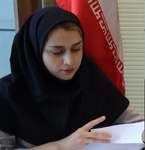Executive Vice Foreign Minister Zhang Yesui made the remarks after talks with his South Korean counterpart, Vice Foreign Minister Lim Sung-nam, underscoring a rift between the countries over the possible deployment of a Terminal High Altitude Area Defense (THAAD) system in South Korea.
"We exchanged views on the THAAD issue and the Chinese side expressed opposition," he told reporters. "We hope the relevant sides will act prudently."
Seoul and Washington have begun consultations on placing a THAAD battery in South Korea in response to what they see as a growing threat from North Korea. Beijing views the move as an expansion of Washington's military presence in the Asia Pacific region.
In a press release issued after the meeting, the Foreign Ministry said Lim explained the various steps South Korea has taken in response to North Korea's nuclear and missile provocations. North Korea conducted its fourth nuclear test on Jan. 6 and launched a long-range rocket on Feb. 7, indicating that it is advancing its nuclear and missile programs in defiance of UN Security Council bans.
Zhang asked for "respect" of Chinese interests and the two sides agreed to strengthen their strategic dialogue in that context, according to the ministry.
South Korean officials said the two sides had "candid, in-depth, and constructive" discussions on the security conditions on the peninsula.
Zhang raised the THAAD issue and expressed understanding on South Korea's stance but he also demanded understanding of Bejing's concerns about that, a ministry official said in a background press briefing.
"What we felt was that both South Korea and China have a strong will for the development of bilateral relations," he added.
Both sides agreed on the need to swiftly adopt a strong and effective UN Security Council resolution that will make North Korea "painfully pay the price" for its nuclear and missile tests.
Zhang told reporters that China supports a new and stronger sanctions resolution against Pyongyang but stressed that a fundamental solution to the North Korean issue should be sought through dialogue and negotiations.
He provided a detailed explanation of the talks underway at the Security Council and the two sides agreed to accelerate their consultations through various channels.
"The Chinese side expounded on what's going on now at the council and we conveyed our clear stance as well," another official said on the customary condition of anonymity. He would not reveal details, citing diplomatic practice.
China, a veto-wielding permanent member of the Security Council, has until now appeared reluctant to adopt strong sanctions against Pyongyang out of concerns for its own security interests.
The two sides also discussed bilateral and global issues and agreed to push for the further development of their ties.
Zhang is the first senior Chinese official to visit South Korea since the North's nuclear test, which it claims was of a hydrogen bomb.
Earlier in the day, he paid a courtesy call on Foreign Minister Yun Byung-se and is scheduled to return to Beijing in the evening.
It is the seventh time South Korea and China have held these high-level talks, or strategic dialogue, since their launch in December 2008.
Lim and Zhang agreed to hold the eighth round in China at a mutually convenient time this year, the ministry said.
YNA/MNA



























Your Comment